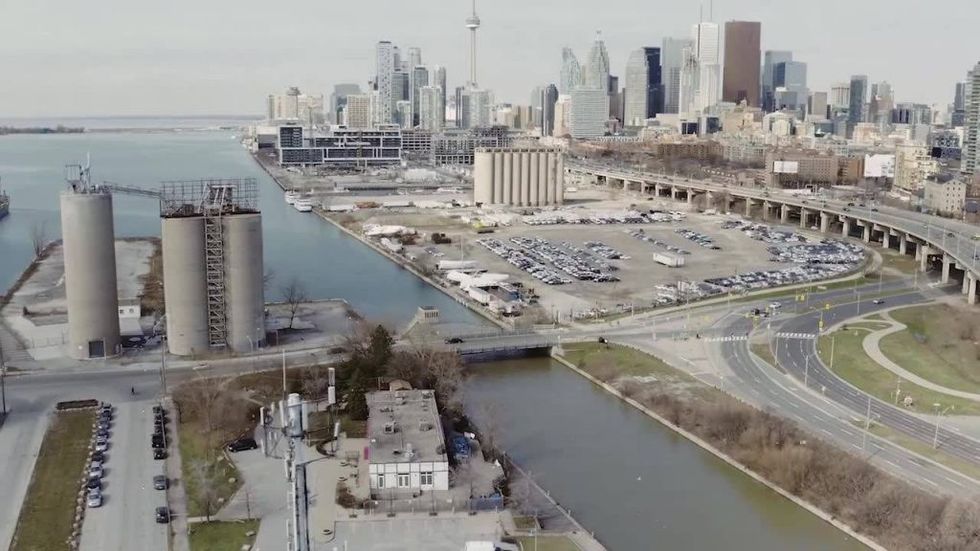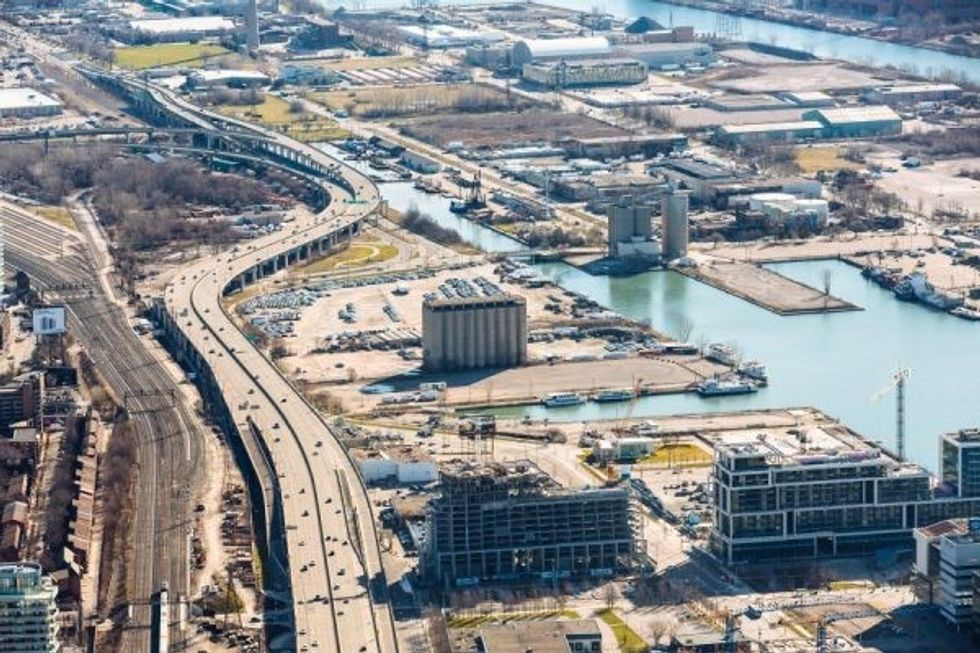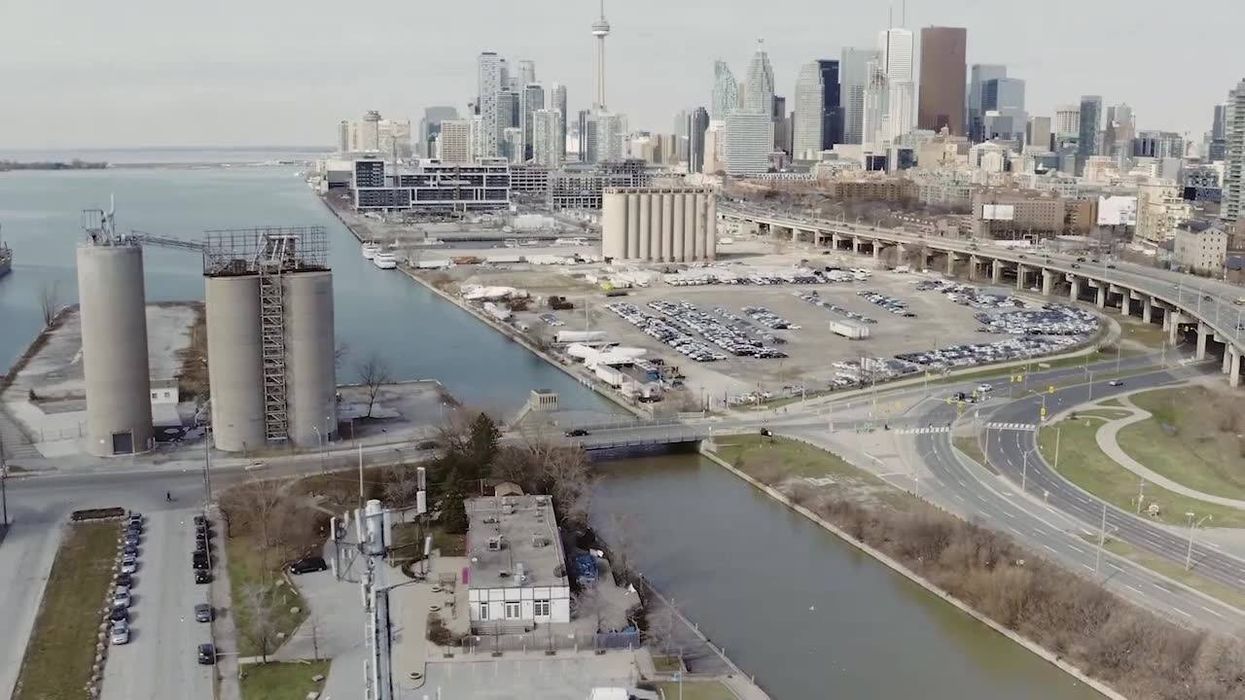
If media reports are to be believed, Sidewalk Labs' Quayside project is nothing less than the launch of a conspiracy to take over Toronto. And then — who knows — the rest of the world.
It is a high-tech Trojan horse designed to deliver this city and its precious data to the evil forces of tech giant Google and its parent company Alphabet.
Critics here and abroad have been sounding the alarm ever since Sidewalks Labs won a request for proposal last fall to oversee the development of a 12-acre site at the foot of Parliament St. on Toronto's eastern waterfront. Their dire warnings are based on an assumption that the city does not have the wit, will or wherewithal to keep up with Sidewalk Labs.
Their argument is that we simply aren't smart enough to understand what Sidewalk Labs is up to, let alone manage it.
“It’s not exactly a level playing field,” James McKellar, director of the Brookfield Centre for Real Estate and Infrastructure at York University's Business School, told Spacing Magazine recently. “You’re dealing with some pretty smart people.”
And, he pointed out, Toronto is up against a corporation that has very deep pockets.
The good professor wants us to know that poor little Toronto doesn't stand a chance. Few would disagree that municipal governments aren't particularly smart. Even fewer would disagree that this city is a good example of poor civic governance.
Indeed, stories of Official Toronto's stupidity are legion. But let's keep in mind that Waterfront Toronto, the tripartite agency that leads the process of waterfront revitalization, has a much stronger history of redevelopment than the city. Its record speaks for itself.
At the same time, however, signs of intelligent life are equally hard to find in corporate management circles here and elsewhere. The tactics of companies as diverse as Bell, Rogers, Loblaws, RIM and Nortel are so dumb and self-destructive they make the business news on an almost daily basis.
In the U.S., where Alphabet is based, the history of corporate incompetence, if not corruption, goes back a long way.
Then there's Toronto's tall poppy syndrome: This is a city that fears excellence and feels uncomfortable with those who stand out.
Rather than examine the potential for Sidewalk's success, we're more accustomed to fixating on what could go wrong. To an extent, that's smart. Failure is always a possibility and to pretend otherwise doesn't make sense.
But let's take a look at exactly what Waterfront Toronto has given Sidewalk Labs.
It has one year from the time the deal was signed last October to come up with a detailed plan for the redevelopment of the Quayside site. If its proposals don't meet with Waterfront Toronto's approval, they can be refused. Sidewalk Labs has made a commitment to spend up to $50 million (US) in the process. It has promised to keep the design process as open and transparent as possible.
Numerous public information sessions have already been held and dozens more are scheduled. As mentioned, if we — Toronto and Waterfront Toronto — don't like Sidewalk Labs' proposal for Quayside, we can say no.
It's that simple.
Yet the media's response verges on the hysterical.
Here's an excerpt of a piece published in the venerable Guardian last fall, which should have known better, "Mayors and tech executives exalt urban labs as sites of disruptive innovation and economic growth. However, this model of creating our urban future is also an insidious way of handing more control — over people, places, policies — to profit-driven, power-hungry corporations."
Though it is the sort of hyperventilating narrative that prevails. And no one has asked why even the most power-hungry corporation would want to take over any city, let alone Toronto.
With its economic pressures, affordability issues, growing disparity and confused governance, what's in it for business?
The media's answer is data — plenty of which is already being collected at every opportunity in Toronto and every other city.
Whether we're at work, watching television at home, talking on a cellphone or walking down the street, we are being monitored.
Wander past the Eaton Centre in downtown Toronto and an email, unbidden and unwanted, arrives on your cellphone to tell you what you already know. The argument that data gathered from a 12-acre site could lead to a loss of a privacy across this sprawling city simply doesn't ring true.
In the digital age, privacy is legitimately everyone's concern. But this was true long before Sidewalk Labs arrived. Though we are loathed to admit it, privacy has all but disappeared from our lives. At Quayside, however, the parameters of confidentiality are still up for negotiation. The choices are ours to make.
It's also curious how in their fixation on Quayside, critics have neglected other plans now unfolding on the waterfront.

Recently, for instance, at a meeting of the Toronto Film, Television and Media Board, industry representatives talked openly about how to keep the value of real estate in the Port Lands low enough to allow its members to build big box studios cheaply. And by the way, they wondered, wouldn't it be nice if the city paid for the construction of these structures.
Is this why the federal, provincial and municipal governments committed $1.5 billion to naturalize the mouth of the Don River and construct flood-protection features? Is this the form revitalization of the Port Lands should take?
What has been forgotten in the media pile on is that Quayside offers a unique opportunity to experiment with new forms of urbanism. As Sidewalk Labs likes to say, "from the internet up."
What will the innovations in housing, mobility, garbage collection, shopping, education, communications look like? Will Quayside enable Toronto to move into the next phase of its evolution without the fear and loathing of the future that has crippled this city in the past?
The potential for failure is great.
So what else is new?
The whole enterprise could flop long before any question of Sidewalk Lab's role in the wider Port Lands is settled — if indeed that is what Sidewalk Labs seeks and we want. But success is also a possibility.
That's enough to make Quayside worth the risk. There's too much to gain to give into fear, finger-wagging, self-doubt and traditional Toronto timidity.
It's time we learned to take yes for an answer.





















